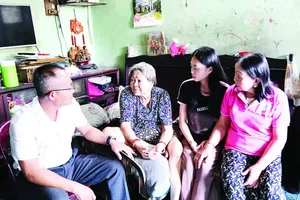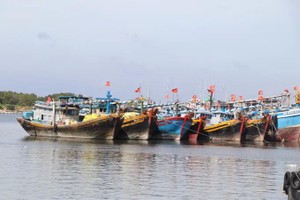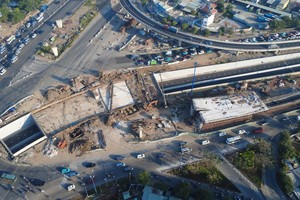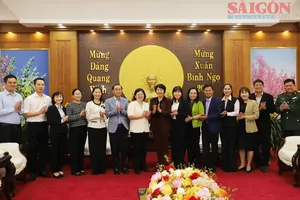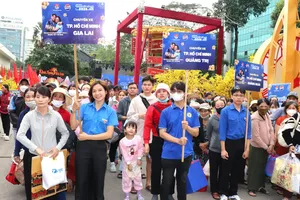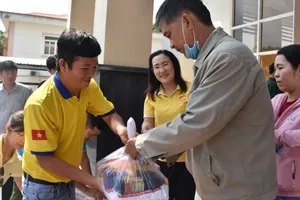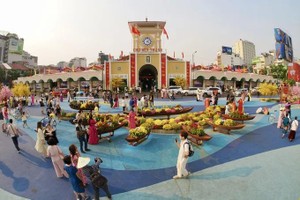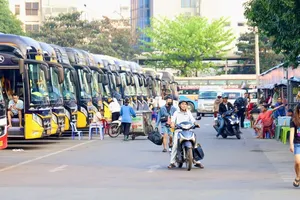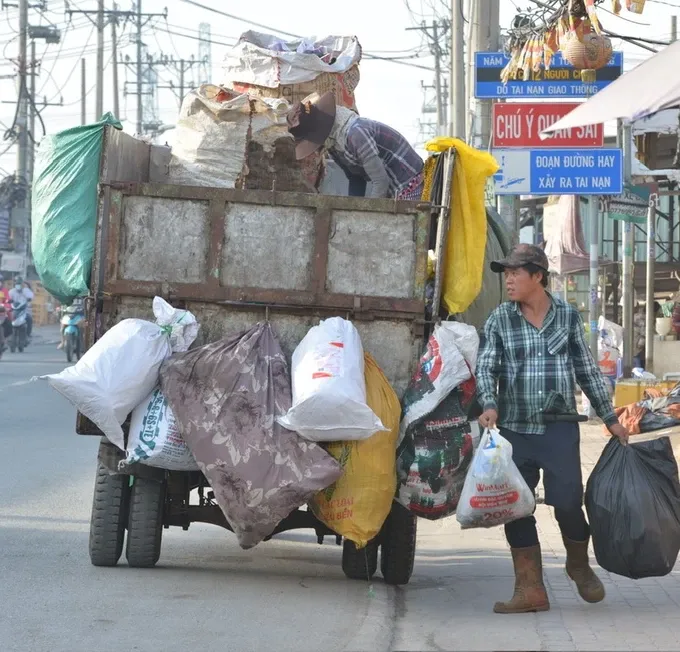
Nguyen Cong Hau, a member of the District 10 Environmental Cooperative, explained that his five-member family (himself, his wife, and three grandchildren) relies solely on waste collection and disposal, generating a monthly income of approximately VND6 million (US$236). Recent intensification of traffic police enforcement against makeshift vehicles has resulted in six fines for his garbage truck, each incurring a VND1-million ($39) penalty. “If this situation persists, my family’s livelihood will become increasingly precarious,” Mr. Hau lamented.
Similarly, Luu Thi Hong, from the District 5 Environmental Cooperative, recounted that her four-member family, including herself and her mother, earns approximately VND6 million monthly from waste collection and transportation. During operations, her vehicle was fined once, and her mother’s thrice. While previous infractions led to vehicle impoundment, fines, and subsequent release, her mother’s vehicle was recently confiscated outright, severely impacting their income and creating considerable hardship.
Reports from various informal waste collection cooperatives indicate that confiscation of makeshift waste trucks is widespread. General Director Pham Van Khanh of the Dong Tam Environmental Cooperative Union (comprising eight member cooperatives) stated that over 200 vehicles belonging to their members have been seized since July 2024.
According to information from districts, these seizures are being carried out in accordance with Dispatch No.3497/CATP-PC08 issued by the HCMC Department of Public Security in June 2024, concerning the handling of informal waste collection vehicles in the city. This action stems from the prevalence of substandard, dilapidated, makeshift, and towed vehicles operating in the city, violating traffic order and safety, including many used for collecting and transporting household waste.
The Division of Natural Resources and Environment in District 10 said that in 2020, the district mobilized social resources and converted 98 vehicles to compliant 660-liter bins. The district has also informed, publicized, and urged local waste collectors to comply with the regulations and convert their vehicles. However, supporting the conversion of all informal waste collection vehicles is beyond the district’s capacity.
Vice Chairman Nguyen Xuan Trung of the District 5 People’s Committee also confirmed that the district has no specific policies to support informal waste collectors in converting their vehicles.
Director Nguyen Thi My Linh of the Nha Be District Environmental Cooperative stated that she contacted the HCMC Environmental Protection Fund for a loan to convert her waste collection vehicle. After two weeks without a response, she followed up and was asked to provide bank statements. “This is impossible because we collect cash. After explaining this without success, I gave up on the loan,” Linh explained.
Furthermore, cooperative members seeking loans are typically required to have residency in HCMC, while most waste collectors reside in other provinces. Representatives from the Binh Thanh District Environmental Cooperative reported that informal waste collection services are mostly small-scale with limited capital. Their income, ranging from VND8-10 million ($315 – 394) per month, is insufficient to cover loan interest. Even those seeking loans are unlikely to secure them due to lender requirements for collateral, which they typically lack, possessing only their simple three-wheeled vehicles.
General Director Pham Van Khanh informed that compliant waste collection trucks cost between VND300-800 million ($11,815 – 31,500), depending on the manufacturer and capacity. This is prohibitively expensive for informal waste collection services. “We, therefore, hope the city will find a suitable solution to help waste collectors access compact, affordable vehicles (under VND100 million ($3,900) per vehicle) to quickly comply with the authorities’ requirements,” stressed the General Director.
According to the HCMC Department of Natural Resources and Environment (the managing unit of the HCMC Environmental Protection Fund), by the end of 2024, the Fund had approved loans for 117 projects totaling over VND135 billion ($5.32 million), with a current preferential interest rate of 3.46 percent per year, a limit of no more than 70 percent of the total investment of each project, and a loan term of no more than 7 years.
So far, 145 garbage trucks have been converted. Representatives from the HCMC Department of Natural Resources and Environment stated that the Environmental Protection Fund will provide different support calculations depending on specific cases.
Vice Chairman Bui Xuan Cuong of the HCMC People’s Committee has recently requested the HCMC Department of Planning and Investment to take the lead in coordinating with relevant departments and agencies to research and advise on the early addition of finance to the HCMC Environmental Protection Fund to support loan projects for converting and purchasing new waste collection and transportation vehicles in the city.
